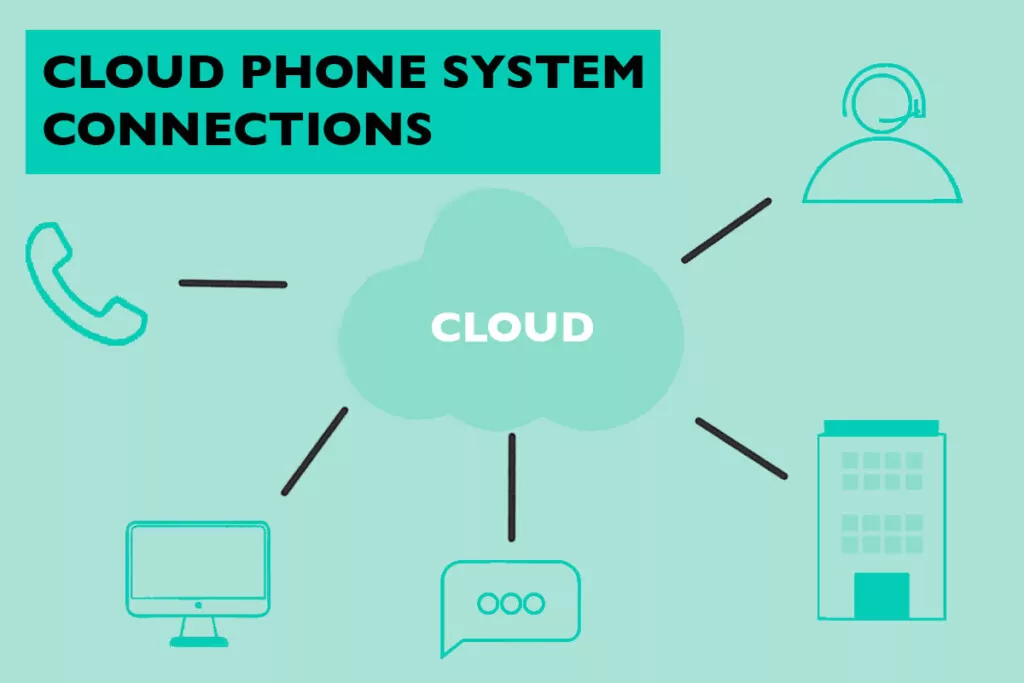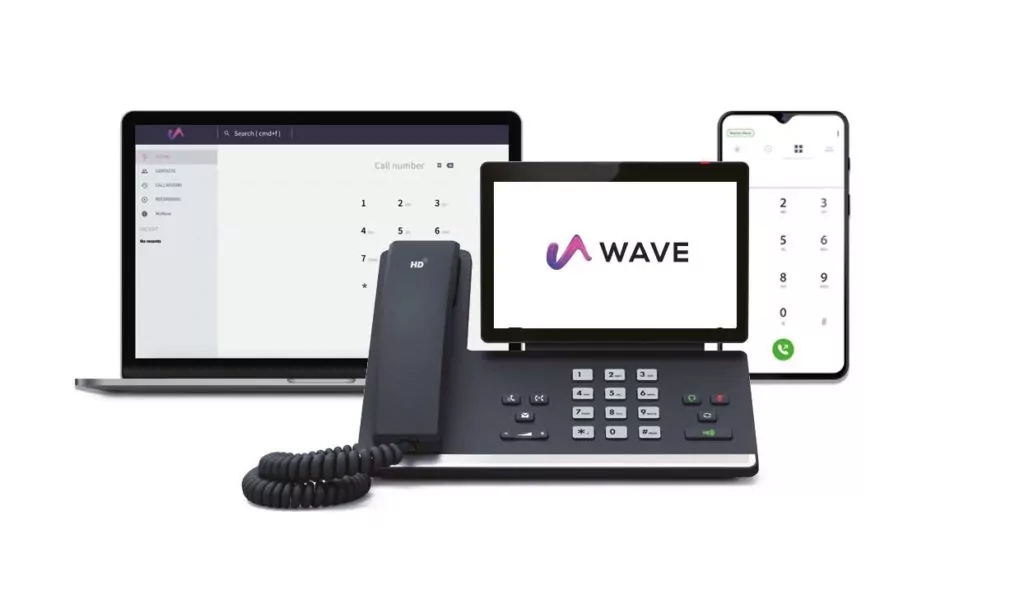Starting a business is hard. You have to develop a product or service, find your target market, create your proposition and sort your commercials. When you start a business, it’s important to consider the communication services that you want for your company. Whatever size, type or needs of your business, you need strong telephony and telecoms services to better your company, for you, your colleagues and your clients. First, you need a modern, VoIP-powered phone system.
Why do I need a phone system?
This is an obvious question but an important one. In 2020, business phones could seem slightly old hat. Email, live chat such as Drift, Facebook Messenger and WhatsApp for Business, and other technologies are taking over as an important (or even primary) method of communication between businesses and customers. But even for tech-based startups, a reliable, powerful and scalable system is the key to planting a flagpole in the sand as a fully-fledged business.
Modern business phone systems (also known as PBXs) almost exclusively use VoIP technology to allow you to make calls using internet connections, rather than older analogue phone and IDSN lines. Statistics from a 2016 survey showed that a third of businesses were using VoIP phone systems, with numbers having multiplied over the past few years.
When deciding on a phone system, you have two main options: an on-premise or a cloud-based system.
An on-premise system means that all your hardware is on-site, which many businesses enjoy as they like the security of having their equipment with them in the office. You’ll need to use SIP Trunks to connect your PBX to the PSTN and traditional phone networks.
A cloud-based system is all maintained ‘in the cloud’, with the only hardware in your office being the phones. An example of a cloud-based system is Gradwell’s Wave.
Need support?
Talk to us today
Contact us
What phone system should I choose?
When investing in a phone system, it’s important to decide what you want and need in a phone for your startup. If you have a small business, a cloud-based phone system is almost always the most flexible, cost effective and safest bet. It has the same (and usually more features) than an analogue PBX system and is less hassle, in terms of equipment and maintenance. If you’re used to cloud-based software (for example CRM systems, Google’s G Suite or Microsoft Office 365), hosted VoIP systems will seem very familiar.

Can a phone system really help my startup?
The simple answer to this is yes. Other than being able to communicate efficiently, a phone system does so much more for your business, from beginning to end. A phone system will not only help your business function but will also make your brand look and sound more professional. Here are some examples we commonly see with our customers:
1. You need to appear larger than you really are
Intelligent usage of a phone system can make your fledgling company seem larger than it really is. With a professional phone system that has an auto attendant or that can let you create and manage a hunt group, the caller will believe that you have multiple employees, departments and even offices, when in reality it could just be one person. This makes you look more professional and like your business is already booming, when you’re only just starting out.
2. You want it to look like you have specialist teams
Not every business can have specialist teams. At Gradwell, we’re lucky enough to have separate Partner and direct support teams (as our end-customers and resellers have very different support needs). Many businesses don’t have this luxury, however. Having the ability (or giving the impression) that your customers can get precise help for their problem, whether billing, technical, sales etc, can make a big difference.
You could set up a range of numbers for different purposes, all of which divert to other numbers (for example a single mobile). You could even do the same with an IVR or “auto-attendant” that funnels customers and prospects to different destinations (or even the same one!).
3. You’re too large to have one person answering all calls
Yes, it’s true. Lots of young companies get one person to answer all their calls. Up to a point, this is OK, but beyond a certain size, this becomes unsustainable. A hosted phone system allows you to set up hunt groups and similar logic to ring certain lines at certain times of the day, and even vary calls based on geographic location of the caller.
4. You work everywhere
You’re starting your own business and you’re currently running around, trying to get everything sorted. With a cloud phone system, you can make and answer calls anywhere, so you don’t have to stay firmly rooted to your desk. This is particularly great if you have a growing team, spread across cities or even countries. There is an increasing trend for companies to have casual employees helping them with their core functionality, and technologies like VoIP allow them to be based anywhere. Give your employee their own extension and they can answer calls away from the office, while also being united under one business number, even from a “non-calling” device, like a tablet, using a softphone.
Finally, while you’re spinning multiple plates, it’s important to have a phone line that is separate from your personal line. With a phone system, you can use one device to manage both your personal and professional calls.

Get started with Wave
The Essential Features for your phone system
To better your business, invest in a phone system that will make your company look great from the get-go and will allow you room to grow. Below is a list of criteria to look for in your phone system and how it will benefit your business.
Number of users
Generally, the first thing to do when you’re considering a phone system is to work out how many phone users and extensions you’ll need. This also includes the amount of hardware and handsets. Your company may be small to start with, but it’s vital to think about how many extensions you’ll need in the long run when your business develops. With a cloud-based system, you can add additional lines yourself as and when you need them. This will save you money and time to set things up and will make your next employee quickly accessible to your clients. From an organisational view, this will also keep your business running smoothly during the arrival of new starters.
Office space and scale
This is similar to the above, but it is also important to check the scalability of your phone system. When looking for a phone system, it is vital to check that your internet connection or broadband covers the size and scale of your office. This is the same with the actual phone system. With your phone system, if you expand over another floor of the building, you can not only monitor that traffic but can also apply more users and floors where necessary. This will lead to little disruption while you expand, making your business more secure and professional-looking.
Audio
It’s obvious that you want good audio when making and receiving phone calls. When using a cloud-based system, you get high quality audio. Making sure you have this from the start when you’re developing your business is important, to give yourself a strong brand voice and to be seen as a reliable and established company.
Disaster Recovery
Protection and security are extremely important for businesses. If anything were to go wrong with your phone system, a Disaster Recovery plan should be in place by your cloud service. These services are great for protection from disasters, as all data and functionality is in the cloud. If you have a hosted VoIP service (where the provider takes care of everything for you), it offers a disaster recovery service, including remote access to your system, cloud and internet backup and monitoring systems. Having this in place for your startup gives you great security and will ensure your data and calls are protected.
Call features
A phone system offers a wide variety of services that will benefit your company, as it grows from a startup to a full-fledged business.
- Call recording is a great feature, that allows you to record both your inbound and outbound calls. This will often include the ability to link with a CRM system and contact records. This will come in handy to your startup for various reasons. It allows you to give feedback to your employees about phone calls, monitors call history and you can listen to your calls again to capture any forgotten details.
- You can make and manage hunt groups. A hunt group is a group of people that are set up to take incoming calls. It’s a clever way of distributing phone calls from one number to a group of phone lines. When callers ring in, they ring one telephone number and the calls are routed to a group of members to answer. This is helpful for your business as you can distribute calls, ensure someone is there to answer a call if another employee is busy and helps prevent missed calls, making sure you’re available to everyone.
- Conference calling is one of the most popular features of a phone system. You can support conference calls as well as other features like sending files, messaging and sharing desktop screens. This allows you to unify your communications which is professional and useful when starting a business.
Personalisation
Personalisation is one of the main features that will benefit your startup and will officially ‘announce’ you as a business. The first step of personalisation is the phone number. This is very important for your business as it will be seen by everyone – customers, clients, investors and so on. You can also customise greeting messages, menu options, and hold music.
IVR
IVR stands for Interactive Voice Response. Essentially, it allows a computer to interact using voice via a keypad. IVR lets customers interact with a company’s system. The IVR responds with audio to advise them on how to proceed. IVR is an intelligent system and makes answering a high volume of calls more efficient. What’s great about this for a startup is that if you have few employees and are dealing with an influx of calls, IVR can take care of it for you. In general, it is an impressive system to have, whether you’re a big or small company.

What questions should you be asking?
How much does a phone system cost?
The cost of your phone system usually depends on the amount of users (or extensions) you need. Some providers will limit functionality for lower cost packages. Others, like our own Wave system, offer the same features for all users on any package. Using a cloud-based system like Wave is usually more cost-effective for small businesses than on-premise PBXs, as you don’t need to shell out significant sums for expensive hardware and you typically pay per month and per user.
Should I consider upgrading or changing my phone system if my business grows?
This depends on the type of system that you chose to begin with. If you’re using a cloud-based phone system and your business grows by employees or office floors, you can easily add users and extensions to cover the expansion. With the ISDN switch off looming, any business will need to switch to a VoIP-based system, with many opting for cloud PBXs.
How do I choose a handset?
When you choose a phone system, you also get to choose a handset. The provider will usually recommend a series of phones that are compatible with your chosen system. Depending on your needs, you can decide between a classic desk phone, a DECT cordless phone or a softphone.
What is a softphone?
A softphone is an electronic device that uses a software program to make and receive local and international calls, using laptops, tablets and PCs. VoIP technology means that you can link up telephone numbers with any device with a connection to the internet. This means you can make and receive calls on a device (like a mobile phone, laptop or tablet) as if you were using a conventional phone – from anywhere in the world.

Wave for SMEs
Our new hosted VoIP phone system, Wave, is designed to help your business grow and get more from their communications.


